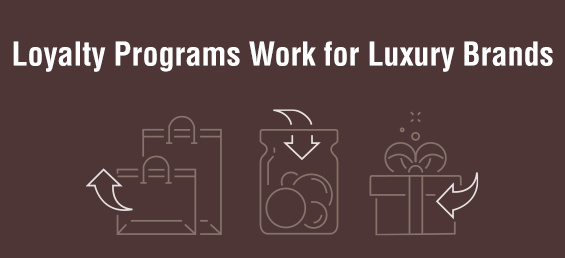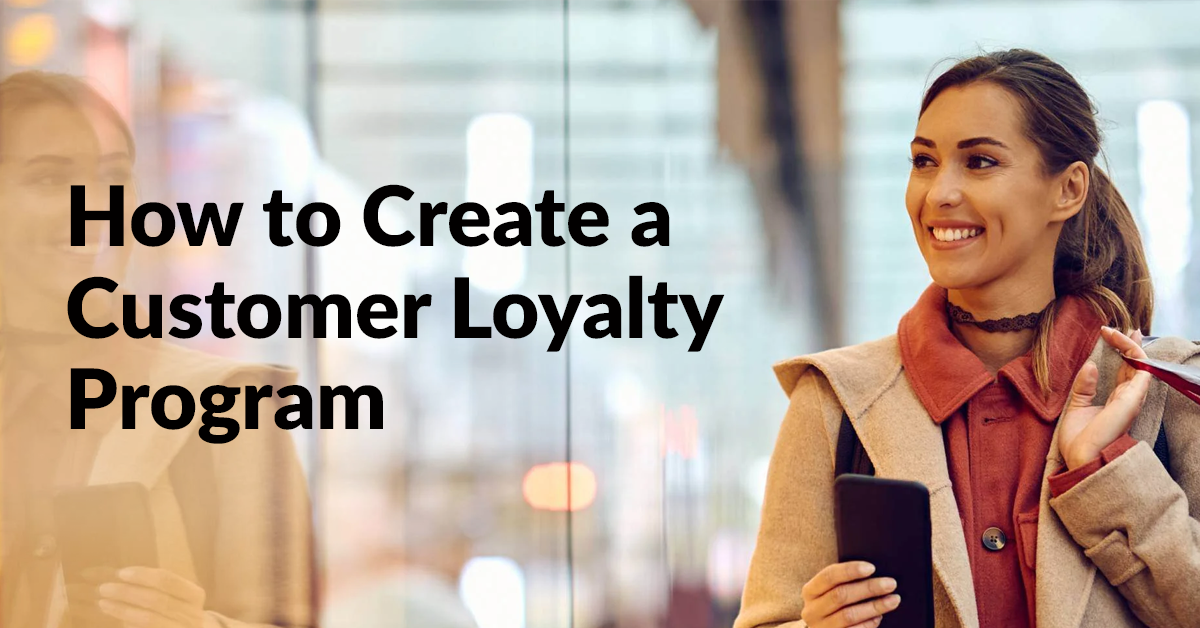Luxury brands, despite their perceived aloofness, have traditionally commanded true loyalty from their well-heeled customers — allowing them to maintain an even keel against the vicissitudes of the global economy. But the changing demographics of luxury consumers are creating new expectations and priorities for engagement, and compelling brands to rethink their tried and tested marketing approaches. In order to maximize their reach in a digital-first playing field, luxury brands need to gain an understanding of the key trends that are impacting loyalty among younger, multi-ethnic luxury consumers.
KEY TRENDS IN LUXURY RETAIL
Fueled by younger demographics, luxury goods are increasingly purchased online. The vast majority of luxury shoppers, whose average age has fallen from 48 to 34, now engage with brands and goods online and are influenced by online interactions. As a result, even the most exclusive luxury brands have begun cultivating digital presences via their own e-shops or through partnerships with e-commerce retailers — or both.
- Luxury goods sales are growing nearly three-times faster online than in physical retail, and now represent 10% of the market.
- According to Forrester Analytics, nearly 60% of luxury sales growth will originate from e-commerce by 2023.
- By 2025, the online channel is expected to represent 25% of the luxury market’s value
Chasing HENRYs: emerging luxury consumers are younger and more diverse. With the increased domination of Millennials and Gen Z consumers in the luxury sales market, brands will have to communicate and market their goods in ways that appeal to these generations.
- Generations Y and Z accounted for 47% of luxury consumers in 2018 and are expected to represent 55% of the 2025 market.
- A new luxury segment has emerged from this demographic – the HENRYs (High-Earners-Not–Rich-Yet) who are expected to become very relevant in the future, especially for luxury brands. HENRYs are aged on average 43, with an income of more than US$100,000, are digital savvy, love online shopping and are big spenders.
Globe-trotting luxury consumers demand seamless, omnichannel customer experiences. Digital is now setting the bar for the experience that a luxury consumer expects to enjoy. As customers travel from one country to another, they now expect seamless, unbroken transactions with brands across every available touchpoint – without any compromises on the personal touches that distinguish luxury shopping.
- Nearly 80% of luxury sales today are “digitally influenced”. Instagram has become the new store window, and shoppers expect to be able to complete a transaction from the channel of their choice.
- A majority (52%) of customers still prefer buying luxury goods in-store, but 43% of luxury shoppers expect to make purchases through either a mobile website, or a mobile app, and have the same curated experience via all touch points
- British fashion house Burberry prioritizes the use of omnichannel tools in order to provide seamless, personalized customer service. Customers are encouraged to digitally share their shopping preferences, experiences, and buying history, so that when they visit an offline store, sales representatives can access this information in real-time via a tablet, and make tailored recommendations. Even the stores are outfitted with digital tools that track customer movements to continually add to their preference profiles. Through these and various other digital initiatives, Burberry achieved 11% growth in revenue and 14% growth in retail sales year over year.
- Fashion giant Gucci reinvented itself for millennial customers through an omnichannel integration of its online and in-store brand experience. For their spring/summer 2018 collection, Gucci’s flagship stores became interactive art galleries, featuring scannable ads, and augmented and virtual reality experiences. They also launched a re-designed website offering personalized customer service by webchat, e-mail and phone.
Today’s conscious consumer expects luxury brands to uphold – and communicate — a value system. As younger consumers become increasingly important to the luxury market, brands have to build strategies to engage with them on their terms. Gen Z craves authenticity and demands transparency as the exchange currency for their loyalty, choosing allegiance with brands that look beyond profits to support sustainability and philanthropy. Luxury brands are responding by highlighting their efforts in these areas.
- Luxury brand Tiffany was one of the first high-end brands to source metals and diamonds only from responsible mining companies, even creating a zero-tolerance policy for purchasing diamonds from countries with human rights infringements. They went further in their social and environmental commitment by creating a philanthropic foundation working on reef conservation and awareness for responsible mining.
- Fashion house Stella McCartney opened a branded retail shop in London in 2018, touted as the most sustainable store in the city. Staying true to the brand’s commitment to sustainability, the space offers ‘the cleanest air’, and utilizes handmade, organic and sustainably sourced elements in the new store design.
BUILDING LUXURY LOYALTY
Traditionally, luxury brands built relationships by selling directly to their customers via their own retail outlets, allowing for an overall better customer experience and valuable knowledge of the end customer. But since more and more products are being bought online, luxury brands are facing the same challenges as everyday brands in that they don’t get access to data. If we look at the breakdown of online luxury sales, we see that multibrand marketplaces are growing the fastest, indicating that the digital luxury consumer is increasingly seeking a multibrand experience. This means that luxury brands will have even less direct interactions with their customers, and that they will have to work harder to foster loyalty among the next generation of luxury consumers. How can brands remedy this situation?
Access Customer Data From Receipts: For purchases made via online marketplaces, or even multi-brand physical retailers, technology like receipt scanning can provide tremendous insights into an individual customer’s purchasing habits. For example, by the use of a simple marketing promotion calling for customers to submit proof of their product purchases, a luxury brand can understand where customers choose to buy their products, in what combination, and in what proportion viz. competing products. Analyzing this level of basket information provides valuable guidance on how to adapt future promotional messages, and allows brands to construct collaborative programs and partnerships with non-competitors to incentivize the customers’ shopping behavior.. and keep the receipts coming in!
- Luxury behemoth Yves Saint Laurent integrated Snipp’s receipt validation technology into their ongoing loyalty program, through which Snipp validates all online and retailer purchases made by YSL loyalty members. Consumers upload their receipts through the YSL loyalty site, allowing Snipp to send YSL relevant purchase data, while also making it seamless and simple for consumers to earn points for each purchase.
- As part of the Lancome Elite Rewards Loyalty Program, Lancome leverages the SnippCheck receipt processing engine to reward its consumers. Customers who purchase any Lancome product can upload their receipt via a simple text, through which they earn points in the Elite Rewards program based on the dollar value purchased. Lancome, in term, gains access to a wealth of shopper analysis.
Reward Customers for Spending via Luxury Loyalty Programs: Many premium luxury brands shy away from loyalty programs because they think it devalues their premium positioning, or are concerned that they won’t align with the image or appeal of the brand. They are wrong. The facts show that consumers with higher incomes are more inclined to be part of a loyalty program, and are also more willing to engage with a brand that offers meaningful rewards. Luxury brands that effectively leverage loyalty programs are able to provide additional value to affluent consumers, while also gaining access to data that customers are increasingly reluctant to hand over.
- 86% of affluent consumers are active in at least one loyalty program, redeeming rewards at a higher rate than other income brackets.
- 78% of affluent individuals say that loyalty programs are a significant part of their brand relationships, more than the average 71% among all consumers.
- Barneys New York introduced a new loyalty program taking into account the desire of luxury shoppers to experience truly special treatment. The program rewards high spenders with exclusive experiences and VIP perks such as private designer events, complimentary beauty treatments, salon services and complimentary experiences at Freds restaurants. More traditional loyalty benefits include personalized promotions, early access to sales and expedited shipping. Perks from the Barneys program are offered through a tiered system, with shoppers that spend more annually receiving bigger rewards. Special promotions through the year offer opportunities to earn additional points, and keep customers in store.
- As of October 2018, Nordstrom has rolled out a new rewards program- The Nordy Club – which rewards members with more and better perks the more they spend. There are four different tiers in The Nordy Club, and they are based off of how much members spend. The highest tier gets admittance to invite-only events, and special access to Nordstrom’s In Home Stylists. The loyalty program has 10+ million active members who spend four times more and shop three times more than non-members.
Create a Loyalty Ecosystem To Delight Experience-seeking Customers: Affluent consumers are increasingly making spending choices based on their values, seeking more meaning out of their investments in time and money. Over 50% of U.S. millennials prefer to spend money on experiences over things, and Millennial HENRYs place a higher value on experiences than tangible luxury goods. For growing numbers of these consumers, an Instagram-worthy moment is the luxury standard. For brands wanting to reward their customers for their loyalty, providing them access to moments and experiences that they would not otherwise be able to enjoy can be more persuasive than a discount – by far. We’re now seeing brands coming together in loyalty partnerships, as these alliances allow them to curate a ‘Loyalty ecosystem’ to provide a larger range of experiential reward offerings to loyal customers.
- Shangri-La Hotels and Resorts, one of Asia-Pacific’s leading luxury hospitality brands, recently entered a strategic partnership with tours and activities aggregator, Klook, to provide their loyalty program members access to a wider inventory of exclusive in-destination packages and experiences.
- Marriott Hotels is focusing on building “emotional loyalty” by offering more experiential redemption opportunities via its Marriott Rewards points in addition to current options such as VIP access to polo tournaments or the U.S. Open tennis championship. Reward offerings could include being able to network with local artists and musicians instead of just getting a tour of local galleries, and finding ways to get in the middle of the action.
REFERENCES





